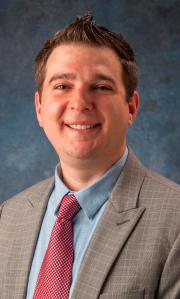California, Pennsylvania and Kentucky Move to Tighten Laws Related to Controlled Substance
 By Lance O. Leider, J.D., The Health Law Firm
By Lance O. Leider, J.D., The Health Law Firm
In reports from both coasts, three states have recently made moves to tighten monitoring and prescribing of controlled substances. Legislators in California, Pennsylvania and Kentucky are contemplating new actions. Health professionals should take note, these prescription drug monitoring programs can, and will be, used as a prosecution tool.
Details of the Prescription Drug Monitoring Program Possibly Coming to Your State.
According to the Los Angeles Times, California is looking to utilize its prescription drug monitoring program CURES to find physicians who are a little too loose with the prescription pad. Lawmakers are contemplating mining the data compiled by CURES to find physicians who are overprescribing and take action against them. Click here to read the entire Los Angeles Times article.
The Pennsylvania house recently forwarded a bill from committee to the floor for a final vote. The bill would establish a monitoring program like those in California, Florida and Kentucky. This monitoring program would be used to combat abuse and doctor shopping by identifying patients that have already received an adequate supply of medications.
Kentucky, already the home of some tough prescription drug laws, is looking to fine tune its regulatory scheme. According to The Courier-Journal, the new bill would clarify existing regulations by providing medical exemptions for patients that would otherwise be wrapped up in the enforcement provisions. To learn more on the proposed changes to Kentucky’s prescription drug laws, click here.
Most States Looking into Prescription Drug Monitoring Programs.
Lawmakers in all three states cited laws and regulations from other states as inspiration for the moves to consider new laws to monitor prescriptions of controlled substances. What this means is that whatever state you may be in, you should be aware that lawmakers are looking around the country at what works and are implementing similar programs and laws in their governments.
Databases Can Be Used as a Prosecution Tool.
Enforcement of drug laws and prescribing regulations has been ever increasing in recent years. The implementation of these databases and corresponding regulations are going to provide more tools for law enforcement and state medical boards to crack down on physicians. In order to avoid trouble it is crucial that you take time to review your state’s prescribing and record keeping laws with an experienced health care attorney.
From experience, we have seen the database in Florida used mostly as a tool for prosecution of pain management physicians and pharmacists. Even in cases where the pharmacist has been the one to notify the authorities of suspected forged prescriptions and where the pharmacist has cooperated in prosecuting the criminals, I have seen this database cited as evidence against him or her. I do not believe this is what the legislation intended. Physicians and pharmacists should consider using whatever database is implemented in their respective states, or otherwise remaining vigilant to avoid being labeled an overprescriber.
To read legal tips to manage pain patients, click here.
Contact Health Law Attorneys Experienced with Investigations of Health Professionals and Providers.
The attorneys of The Health Law Firm provide legal representation to physicians, nurses, nurse practitioners, CRNAs, pain management doctors, dentists, pharmacists, psychologists and other health providers in Department of Health (DOH) investigations, Drug Enforcement Administration (DEA) investigations, FBI investigations, Medicare investigations, Medicaid investigations and other types of investigations of health professionals and providers.
To contact The Health Law Firm, please call (407) 331-6620 or (850) 439-1001 and visit our website at www.TheHealthLawFirm.com.
Opinions?
Does the state where you are located have a prescription drug monitoring program? Is it similar to any of programs we mentioned in this blog? What do you think of these programs? Are they necessary? Please leave any thoughtful comments below.
Sources:
Girion, Lisa and Glover, Scott. “Atty. Gen. Kamala Harris Urges Funding for Prescription Tracking.” Los Angeles Times. (March 3, 2013). From: http://latimesblogs.latimes.com/lanow/2013/03/attorney-general-kamala-harris-funding-prescription-database-.html
Wynn, Mike. “Kentucky Legislature Overhauls Prescription Drug Law.” The Courier-Journal. (March 4, 2013). From: http://www.courier-journal.com/apps/pbcs.dll/article?AID=2013303040093&nclick_check=1
Associated Press. “Lawmakers Mull Prescription Drug Monitoring.” Associated Press. (March 4, 2013). From: http://meadvilletribune.com/local/x986702017/Lawmakers-mull-prescription-drug-monitoring
About the Author: Lance O. Leider is an attorney with The Health Law Firm, which has a national practice. Its main office is in the Orlando, Florida, area. www.TheHealthLawFirm.com The Health Law Firm, 1101 Douglas Avenue, Altamonte Springs, Florida 32714, Phone: (407) 331-6620.
The Health Law Firm” is a registered fictitious business name of George F. Indest III, P.A. – The Health Law Firm, a Florida professional service corporation, since 1999.
Copyright © 1996-2012 The Health Law Firm. All rights reserved.









